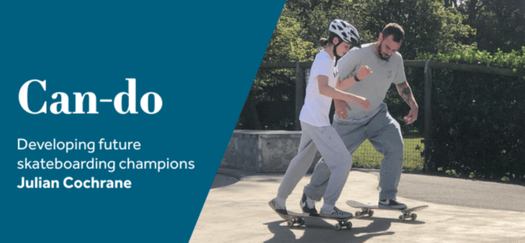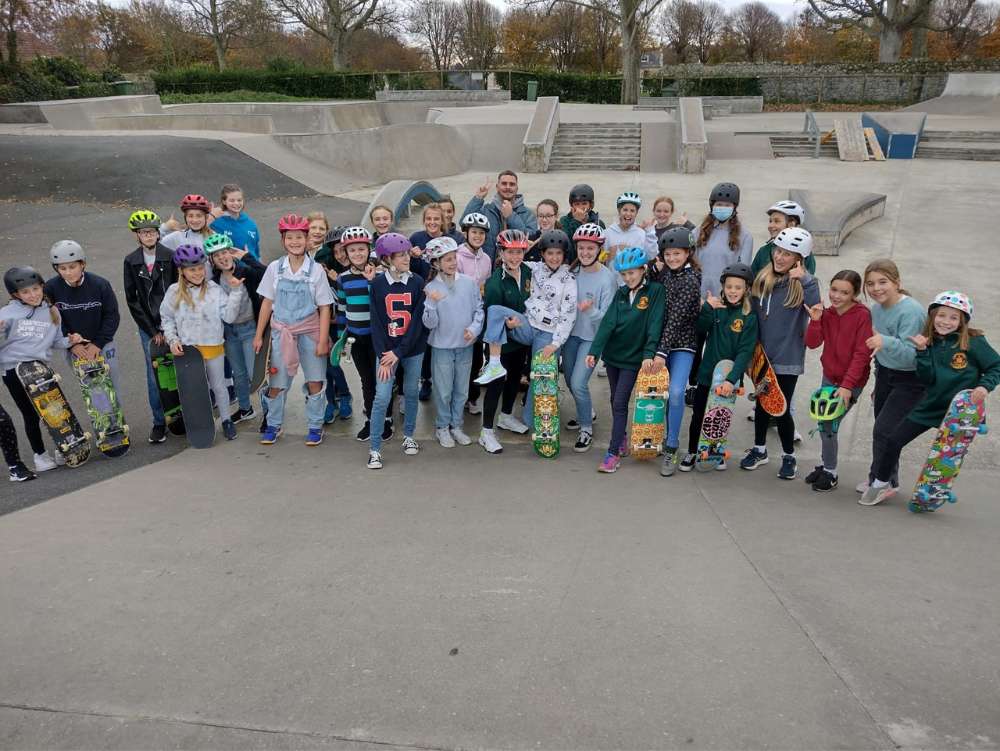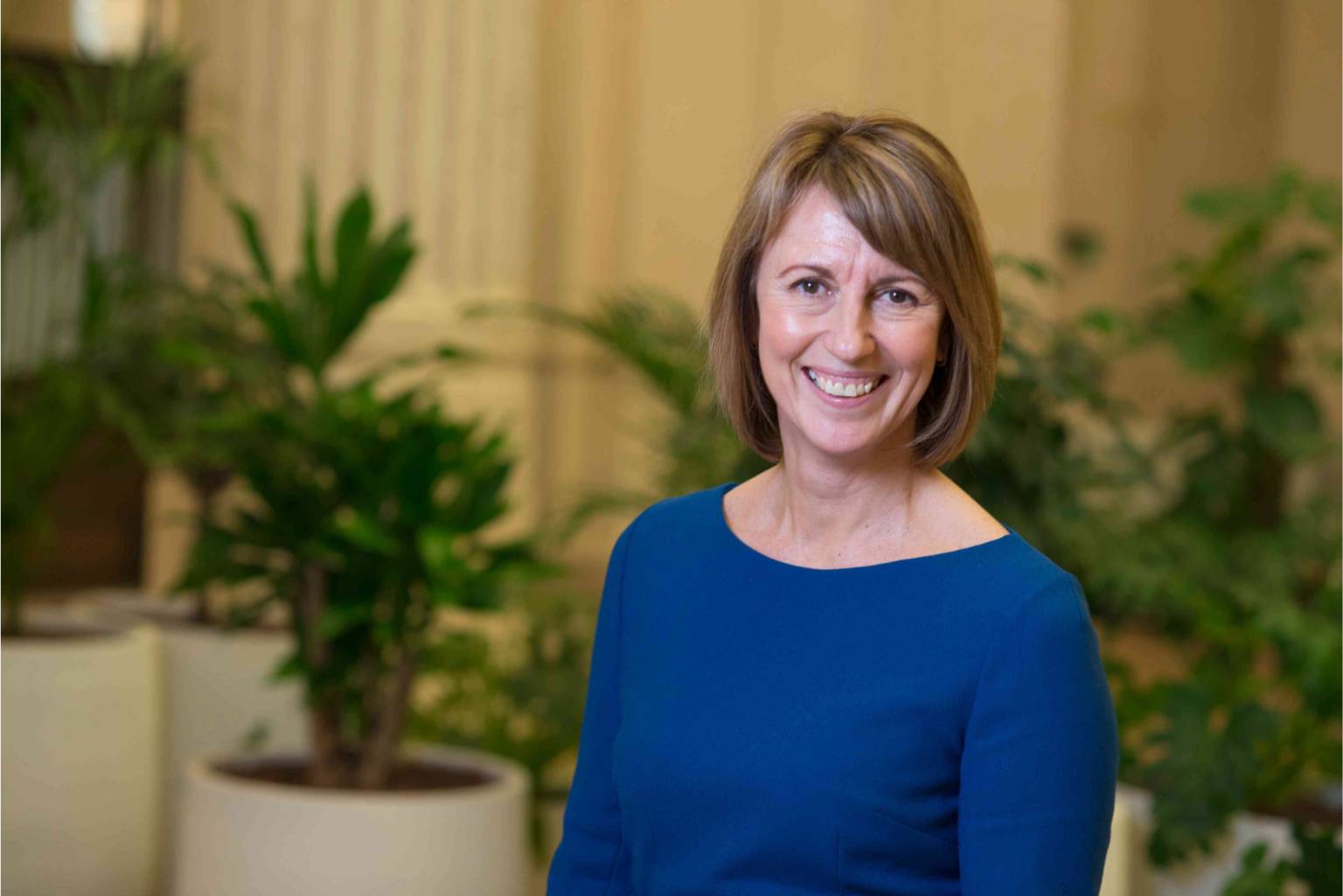- Home
- About us
- Our community
- Can-do blog
- skateboarding with Julian Cochrane
Talking skateboarding and what #cando means with Julian Cochrane

In the latest in our series of conversations on can-do with colleagues around the business, we spoke with Julian Cochrane, Operations Officer - Corporate Events in our Guernsey office, to talk about his work teaching skateboarding in schools through the Guernsey Sports Commission.
How did you get involved with teaching skateboarding?
The Guernsey Sports Commission runs all the sports lessons for the state schools on the island, and they wanted to expand their curriculum to include skateboarding. They contacted me to see if I was interested in doing the lessons. I’d intended to start running lessons privately anyway, so the timing worked out well for me to offer them through the Sports Commission instead.
What’s your background in the sport?
I skateboarded competitively for many years. I lived in Barcelona for around 6 years, where I competed a lot, and funded myself through a combination of sponsorship and part-time work. I have skated in total for around 19 years now, and for 12 of those years I was sponsored.
What impact do you think your lessons have on the kids you teach?
I wanted to do this because I think skateboarding really helps to improve kids’ self-confidence. As they develop their skills at the sport, this also transfers to their everyday lives by helping them overcome their fears in other areas. I wouldn’t have got anywhere in life without skateboarding because of the skills and personality traits it’s helped me to develop, so I’m glad to be able to pass on my knowledge of the sport and the benefits it’s brought me.
I took a sports science course when I was younger, so I’m quite good at analysing to help people get past the initial challenges they might have with skateboarding, and help them to persevere.

Are there any differences now compared to when you learned to skateboard?
The whole concept of skateboarding lessons is fairly new, and has only really taken off in the last few years since it was announced as a new sport for the Tokyo Olympics. I was completely self-taught and so were nearly all of my peers. The Olympics has raised the profile of the sport, and inspired many kids to try it.
What has been the highlight of your work teaching skateboarding?
It would be hard to name just one single thing, as I really enjoy the whole experience of teaching. The kids are brilliant at learning, so it’s great to see them take on board what I teach them, then watch them improve week after week. I teach three lessons at different schools, and the kids range from age 11 to 18.
How does the work you do with skateboarding complement your role at Canaccord?
If anything, I’d say it’s more the case that my work at Canaccord has helped my coaching. I’ve learned how to explain things clearly as part of my role at Canaccord, and this has made me more effective at teaching.
What does can-do mean to you?
In the context of this topic, if you can do skateboarding, you can do pretty much anything. When learning to skateboard, you go through many difficulties that you need to overcome, and it’s the same in life generally. Skateboarding helps you develop the right attitude and determination to get past hurdles.
You may also be interested in:
- Talking diversity, ESG and #cando with award winner Sean Taylor
- Teamwork with Lizzie Simmonds and Henry Weir
If you would like to find out more about our can-do approach, please get in touch.
Find this information useful? Share it with others...
Investment involves risk and you may not get back what you invest. It’s not suitable for everyone.
Investment involves risk and is not suitable for everyone.
